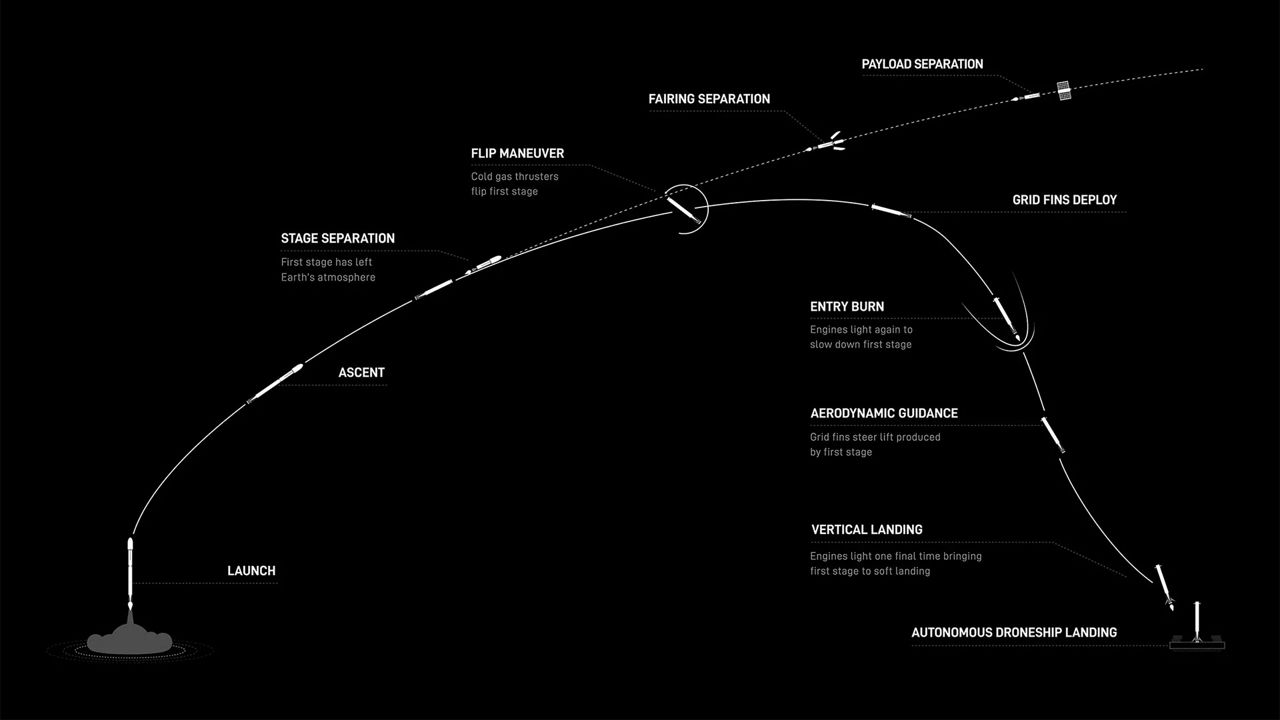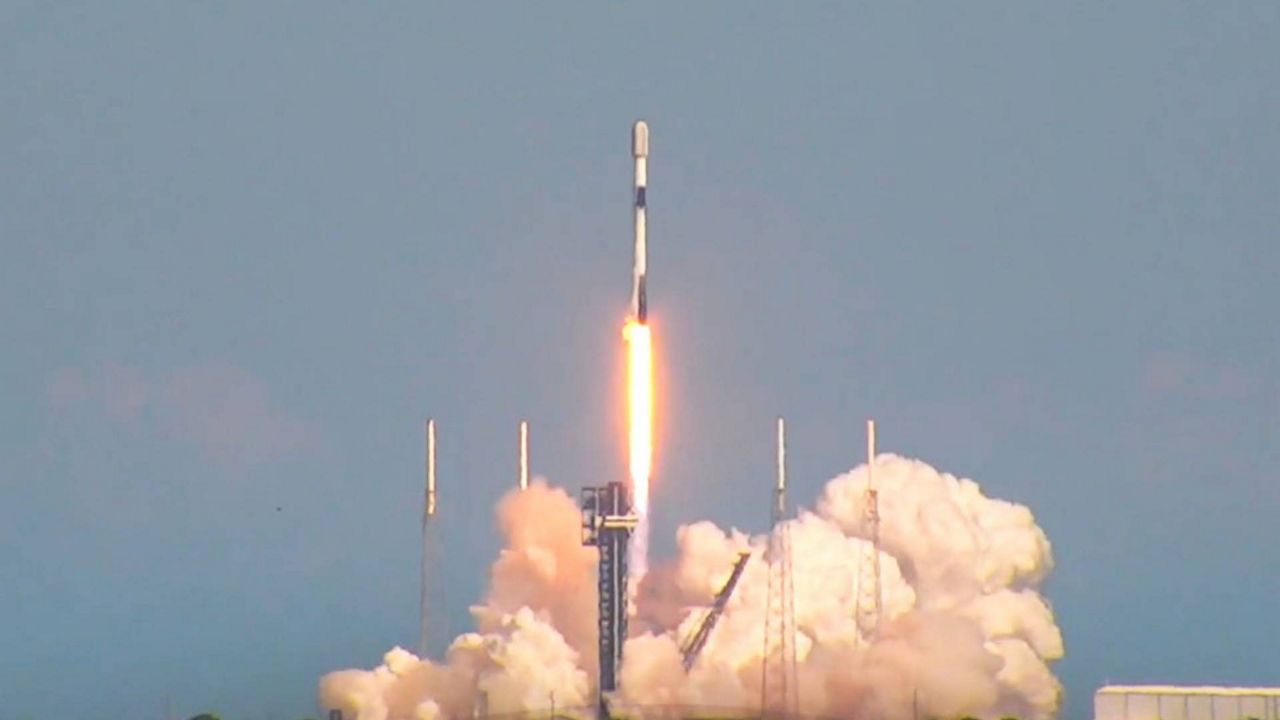CAPE CANAVERAL SPACE FORCE STATION — The skies were clear as SpaceX launched more than 20 Starlink satellites on Saturday afternoon.
What You Need To Know
- SpaceX sent off the Starlink 12-9 mission
- The 21 Starlink satellites took off from Space Launch Complex 40
The Falcon 9 rocket sent up Starlink 12-9 mission from Space Launch Complex 40 at Cape Canaveral Space Force Station, stated SpaceX.
The launch took place at 2:18 p.m. ET. The launch window opened at 1:52 p.m. ET and was set to close at 5:08 p.m. ET.
Originally, the launch was supposed to take place on Friday at 1:52 p.m. ET. SpaceX did not give a reason for the delay.
The 45th Weather Squadron had given Friday's launch a 95% chance of good liftoff conditions, with the only concerns being the cumulus cloud rule.
Find out more about the weather criteria for a Falcon 9 launch.
If the launch was canceled, the next attempt would have been Sunday at 2:55 p.m. ET.
Going up
For this Falcon 9’s first-stage booster, this will be its 17th mission. The booster, called B1078, has done some impressive missions in the past:
- Crew-6
- SES O3b mPOWER
- USSF-124 mission
- Bluebird
- Starlink 6-4
- Starlink 6-8
- Starlink 6-16
- Starlink 6-31
- Starlink 6-46
- Starlink 6-53
- Starlink 6-60
- Starlink 10-2
- Starlink 10-6
- Starlink 10-13
- Starlink 6-76
- Starlink 12-6
After the stage separation, the first-stage rocket landed on the droneship A Shortfall of Gravitas that will be in the Atlantic Ocean.

About the mission
The 21 satellites will be heading to low-Earth orbit, where there are more than 6,000 already there.
SpaceX owns the Starlink company.
Once deployed and in their orbit, they will provide internet service to many parts of Earth.
Dr. Jonathan McDowell, of Harvard-Smithsonian Center for Astrophysics, has been recording Starlink satellites.
Before this launch, McDowell recorded the following:
- 6,992 are in orbit
- 6,265 are in operational orbit




